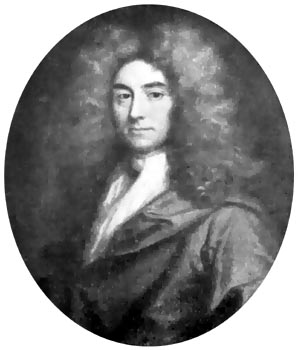 |
 |
|||
|
|
Francis was the son of the squire of Shottesbrooke in Berkshire, William Cherry, and his wife, Ann, the daughter of John Whitfield of Ives Place at Maidenhead, also in Berkshire. He was born at his father's own Maidenhead estate called Monkendon's and baptised in nearby Cookham Church. He would not acknowledge King William and Queen Mary, and when he found that William was following him pretty closely in stag-hunting, he suddenly leapt his horse down a steep and dangerous bank into the Thames, hoping that 'the usurper' would follow him and break his neck; but the King turned away. Again, Cherry would not acknowledge Queen Anne as his sovereign and so, the first day she drove to the hunt after she became Queen, he kept away from her. Anne asked Peachey, her 'bottle-man,' if that were not Mr. Cherry in the distance and, when he replied that it was, she said, “Aye, he will not come to me now; I know the reason. But go you and carry him a couple of bottles of red wine and white from me, and tell him that I esteem him one of the honestest gentlemen in my dominions.” True to his principles, Cherry bade Peachey express his humble respects and best thanks to 'his mistress'. Upon his father's death, Francis inherited debts amounting to £30,000. He once passed a few days in Reading Gaol but, like a true gentleman, spent £100 in entertaining the gentry who visited him there. A man of learning and critical ability himself, Cherry encouraged these gifts in others more than he expressed them himself. Discovering the talents of Thomas Hearne, the son of the parish clerk of White Waltham, near his own beautiful home at Shottesbrooke Park, Cherry put the boy to school, took him to live in his own house, helped him in his studies and supplied him with money until he had taken his M.A. degree. This historical antiquary became the Wormius of the Dunciad. To Hearne he was always “my best friend and patron”. At Shottesbrooke, which was the meeting place of the non-jurors, he often welcomed Bishop Ken; Dodwell who settled at Smewyn's Manor, a house near his own; Nelson was his constant guest; while Leslie, he concealed for a time in disguise (he sometimes, it is said, even “wore regimentals”) and then sent him to Rome to convert the exiled King. James assured Leslie of his unalterable attachment to his own faith and sent Cherry a ring in token of his regard. At Cherry's house, first Gilbert and then Brokesby held prayers twice daily. At the same time, Cherry lived on friendly terms with White Kennet, afterwards Bishop of Peterborough, to whom he had given the living of Shottesbrooke, the church lying just across his garden. Truly, if there were Squire Westerns in those days, there were also Squire Allworthys in real life. Cherry was a fine specimen of the class which thrives nowhere so well as in England. At Shottesbrooke, he died, “the idol of Berkshire,” and in that churchyard lies his grave, bearing, in obedience to his wishes, no name, only the date of his death and the words: Hic iacet peccatorum maximus (Here lies the Greatest of Sinners). Edited from CRL Fletcher's 'Historical Portraits' (1919)
|
|||
| © Nash Ford Publishing 2001. All Rights Reserved. | ||||



 Francis
Cherry (1665-1713)
Francis
Cherry (1665-1713)